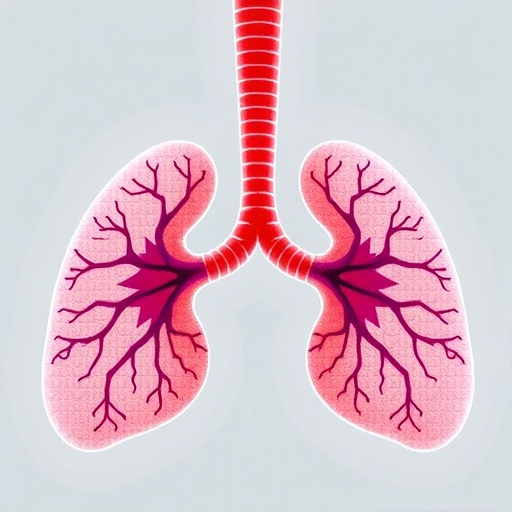Bladder cancer is an insidious disease that has significant implications for public health. Recent research has shed light on the critical differences in how this cancer manifests and progresses between men and women. Understanding these differences is not merely an academic exercise but is essential for developing gender-specific approaches to treatment and prevention. A pivotal study by Chaudhary, Singha, and Abdel-Hafiz has provided extraordinary insights into the biological and clinical implications of sex differences in bladder cancer, highlighting the need for targeted therapies.
Traditionally, bladder cancer has been viewed through a lens that often overlooks the biological and physiological distinctions between the sexes. The implications of these distinctions are profound and are starting to be understood at a deeper level. Men are diagnosed with bladder cancer more than three times as often as women, yet the reasons behind this disparity have remained somewhat enigmatic. This research indicates that hormonal differences, genetic factors, and environmental exposures contribute significantly to this variance.
The role of hormones in bladder cancer is particularly intriguing. Testosterone and estrogen, which play crucial roles in the pathophysiology of various cancers, seem to exert opposing effects in bladder tissue. The study suggests that higher levels of estrogen in females might afford some protective effect against the development of bladder tumors, potentially inhibiting tumor growth and providing insight into why men are diagnosed more frequently. Conversely, the interplay of androgens and the prevalence of smoking in males could exacerbate their risk.
Furthermore, the genetics of bladder cancer also appear to diverge by sex. The incidence of certain mutations and the expression of specific genes vary between male and female patients. The research indicates that variations in the tumor microenvironment could influence tumor behavior differently based on sex. These findings emphasize that treatment strategies must consider these genetic factors. For instance, the response to common chemotherapy drugs such as cisplatin may be gender-dependent, necessitating individualized treatment approaches that take sexual dimorphism into account.
Environmental factors are another essential aspect of this research. Lifestyle choices, particularly smoking and exposure to carcinogens, are more prevalent among men, contributing to their higher rates of bladder cancer. The research delves into the epidemiology of bladder cancer, discussing how factors such as occupation, exposure to specific chemicals, and even diet can influence cancer rates by sex. Women often have lower exposure rates and different susceptibility to carcinogenic agents, which could explain some of the observed disparities.
Notably, the study reveals that not all bladder cancer subtypes behave similarly in men and women. For instance, muscle-invasive bladder cancer, which often has a poorer prognosis, shows different biological markers in male patients compared to female patients. By identifying these differences, researchers hope to develop tailored treatments that can effectively target the specific subtypes of bladder cancer that are more prevalent in one sex or the other.
Another critical angle explored in the research is the impact of late diagnosis and subsequent treatment outcomes, which often differ by sex as well. Women are often diagnosed at a later stage of the disease, possibly due to misattributions of their symptoms to urinary tract infections or other benign conditions more common among females. This delayed diagnosis can lead to poorer prognosis and highlights the need for better awareness and education regarding the signs and symptoms of bladder cancer in women.
The psychological aspects of coping with a bladder cancer diagnosis also reveal interesting differences between the sexes. Men and women may respond differently to the emotional burden of a cancer diagnosis, influencing their treatment choices and adherence to recommendations made by healthcare providers. Understanding these psychological differences can facilitate the development of more effective support systems tailored to the unique needs of each sex.
Importantly, this research does not only seek to delineate the problem but also paves the way for significant advancements in how we approach bladder cancer. Insight into sex-based biological differences will enable oncologists and researchers to innovate new therapies that could improve outcomes for both men and women. Such advancements could include precision medicine approaches that utilize genetic profiling to determine the most effective treatments based on an individual’s sex and genetic makeup.
As we drive toward more personalized medicine, the implications of these findings reach beyond bladder cancer. Other cancers may also exhibit sex-based disparities, suggesting a broader need for research that acknowledges and investigates these crucial differences. Armed with this knowledge, the medical community can better address cancer as a multifaceted disease that requires a comprehensive understanding of the patient’s biology, environment, and psychological state.
In conclusion, the study by Chaudhary, Singha, and Abdel-Hafiz marks a significant step forward in our understanding of bladder cancer through the lens of sex differences. These findings are not merely academic; they are vital in transforming clinical practices and improving survival rates. The evolution of treatment paradigms that take into account the unique biological and psychological dimensions of each sex will undoubtedly lead to improved health outcomes and a better quality of life for bladder cancer patients across the board. With ongoing research and a commitment to understanding these differences, we can usher in a new era of personalized cancer care, offering hope to those affected by this challenging disease.
Subject of Research: Bladder Cancer and Sex Differences
Article Title: Understanding Biological and Clinical Implications of Sex Differences in Bladder Cancer
Article References:
Chaudhary, P., Singha, B., Abdel-Hafiz, H.A. et al. Sex differences in bladder cancer: understanding biological and clinical implications.
Biol Sex Differ 16, 31 (2025). https://doi.org/10.1186/s13293-025-00715-6
Image Credits: AI Generated
DOI: 10.1186/s13293-025-00715-6
Keywords: Bladder cancer, sex differences, hormonal factors, genetic variations, environmental exposures, personalized medicine.




